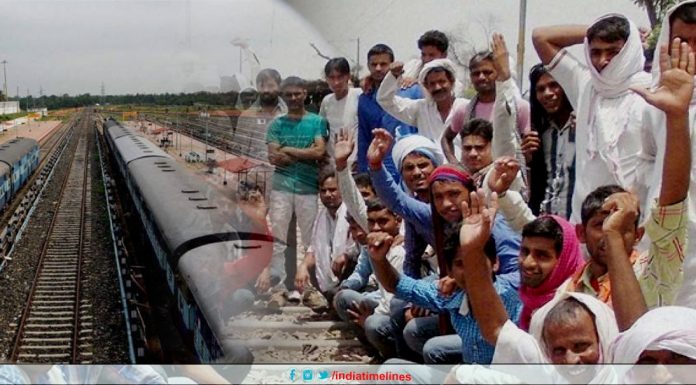
Gangster Lawrence Bishnoi has become a well-known figure in India’s underworld, gaining notoriety for his involvement in multiple criminal activities across the country. Recently, the Karni Sena, a controversial political group, announced a bounty of ₹1,11,11,111 for any police officer who successfully kills Bishnoi. This bold move has sparked widespread debate over the legality and ethics of such a public offer, along with the implications it holds for law enforcement and society.
Visit Us: www.indiatimelines.com
Who Is Lawrence Bishnoi?
Lawrence Bishnoi hails from Rajasthan and has a long history of criminal activities, dating back to his youth. Born into a relatively well-off family, Bishnoi was once a student leader before his shift into the criminal world. Over the years, he has been accused of extortion, murder, and involvement in a wide array of illegal activities.
Bishnoi’s gang operates across multiple states in India, and he has been linked to several high-profile incidents, including the threat to kill Bollywood actor Salman Khan. His ability to evade capture, combined with the ruthlessness of his gang, has made him a dangerous figure in India’s criminal landscape.
Why Has Lawrence Bishnoi Become a Target?
Bishnoi’s involvement in serious crimes, particularly those involving violence and extortion, has led to increasing public outrage. His network is believed to operate in several states, engaging in drug trafficking, contract killings, and intimidation tactics. The public, as well as law enforcement, have been grappling with the growing threat his gang poses.
The outcry has now reached a point where political groups like the Karni Sena have decided to take matters into their own hands, leading to the announcement of a bounty for Bishnoi’s death.
The Karni Sena’s Involvement
The Karni Sena, a Rajput organization known for its activism and controversial stances, has a history of making bold declarations. They have been at the forefront of several protests and are infamous for their aggressive tactics, such as during their protest against the Bollywood movie Padmaavat. Now, the group has turned its attention to Bishnoi.
By offering a bounty on Bishnoi’s head, the Karni Sena has taken a stand against organized crime, positioning itself as a protector of the public. However, this move has raised eyebrows due to the potential for misuse and escalation of violence.
The Announcement of ₹1,11,11,111 Bounty
The bounty amount of ₹1,11,11,111 is not only substantial but also symbolic in its repetition of the number one, suggesting a focused, singular goal: the death of Lawrence Bishnoi. The Karni Sena has explicitly stated that the reward is for any police officer who successfully kills the gangster in an encounter.
While the group has framed this offer as an attempt to aid law enforcement, many have criticized it for encouraging extrajudicial measures and vigilante justice. The offer has created a buzz across media platforms, with people reacting both in favor of and against the move.
The Role of Law Enforcement
Law enforcement agencies face significant challenges in apprehending notorious criminals like Bishnoi. Despite previous efforts to capture him, Bishnoi has managed to evade authorities due to his extensive network and the resources at his disposal. The bounty further complicates the situation for police, as it adds pressure on them to act swiftly, but also raises concerns about the legality of extrajudicial encounters.
While India has seen several encounters where gangsters have been killed by police, these are often met with both praise and criticism, depending on the circumstances.
Gang Violence in India
India has long struggled with the issue of gang violence, with organized crime syndicates playing a significant role in various illegal operations. Bishnoi’s gang is one of many, but its operations stand out due to the level of violence and intimidation it employs. These gangs not only operate within India but also have ties to international criminal organizations.
The rise of such criminal networks has made it increasingly difficult for law enforcement to maintain order, particularly in states like Punjab, Haryana, and Rajasthan.
Public Perception of Vigilante Justice
Vigilante justice has often been romanticized in India, with many people supporting such actions when they feel the legal system has failed. The Karni Sena’s bounty announcement taps into this sentiment, appealing to those who believe that Bishnoi’s crimes deserve immediate retribution. However, this approach raises ethical concerns about bypassing the legal system.
Media coverage plays a crucial role in shaping public perception, and the Karni Sena’s announcement has certainly grabbed headlines, prompting discussions about the balance between justice and vigilantism.
The Government’s Response
The Indian government and law enforcement agencies have so far refrained from endorsing the Karni Sena’s bounty. Official statements have highlighted the importance of due process and the dangers of encouraging extrajudicial killings. Legal experts have also weighed in, emphasizing that while public outrage against criminals like Bishnoi is understandable, it is crucial to uphold the rule of law.
What Could Happen Next?
The bounty on Lawrence Bishnoi could lead to various outcomes. On one hand, it might increase pressure on police to intensify their efforts to capture or neutralize Bishnoi. On the other hand, it could lead to further violence, as rival gangs or individuals might seek to claim the bounty themselves.
There is also a risk that law enforcement officers may come under scrutiny for how they handle future encounters with Bishnoi, with concerns about the potential for human rights violations.
The Societal Impact of Gangster Bounties
Offering a bounty on criminals like Bishnoi can have long-term implications for public trust in law enforcement. While some may view it as a proactive step toward ensuring justice, others fear that it could encourage more lawlessness and violence. There is a fine line between justice and chaos, and the Karni Sena’s announcement brings this debate to the forefront.
Ethical and Legal Considerations
Legally, the Karni Sena’s bounty offer raises several questions. Indian law does not support extrajudicial killings, and offering money for such actions could lead to criminal charges for those involved. Ethically, the move also presents a dilemma: Is it right to put a price on a person’s head, even if that person is a dangerous criminal?
International Reactions
Around the world, similar incidents have played out with varying outcomes. Countries like the United States have also seen public bounties on criminals, but such actions are often subject to strict legal scrutiny. India can learn from these experiences to ensure that its fight against crime remains within the boundaries of the law.
Conclusion
The Karni Sena’s announcement of a ₹1,11,11,111 bounty for the encounter of Lawrence Bishnoi has sparked intense debate. While many see it as a bold move against a dangerous criminal, others warn of the dangers of bypassing the legal system. As the country continues to grapple with organized crime, it remains crucial to balance public safety with the rule of law.
FAQs
1. What is Lawrence Bishnoi known for?
Lawrence Bishnoi is known for his involvement in organized crime, including extortion, murder, and drug trafficking. He has also threatened Bollywood actor Salman Khan.
2. Is offering a bounty on a criminal legal in India?
No, offering a bounty for an extrajudicial killing is not legal in India. Such actions can lead to criminal charges.
3. What does Karni Sena hope to achieve with the bounty?
The Karni Sena aims to eliminate Lawrence Bishnoi by encouraging law enforcement to take decisive action against him.
4. How is the Indian government responding to this?
The government has emphasized the importance of due process and has not endorsed the Karni Sena’s bounty.
5. What are the risks involved in this kind of public announcement?
Public bounties can encourage violence, lead to human rights violations, and undermine the legal system.



































Some genuinely good information, Glad I found this. “‘Beauty is truth, truth beauty,’ — that is allYe know on Earth, and all ye need to know.” by John Keats.